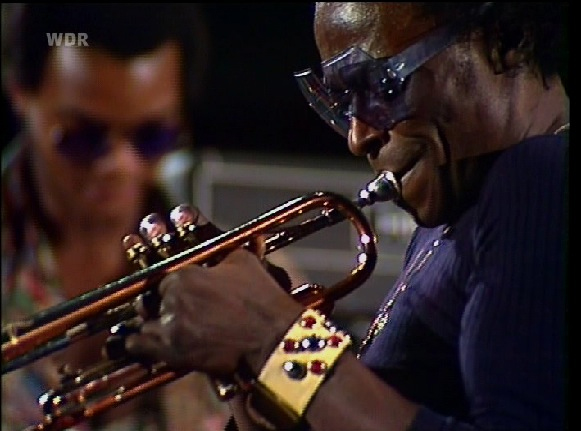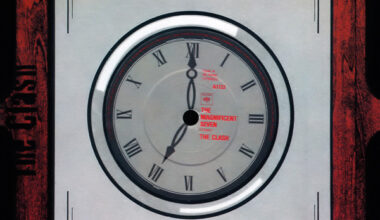Freewheeling through time and space, Kris Needs continues his further adventures in audio. This month: Miles Davis

The release of ‘The Lost Septet’, featuring a 1971 Miles Davis live gig not heard since its radio broadcast 49 years ago, reminded me what an utterly fearless electronic trailblazer the irascible trumpet magus was. He was making music so audaciously new at the time, it was routinely greeted with abuse, overlooked in favour of safer fare or simply ignored until years later.
It’s well established how Miles revolutionised electric jazz with 1969’s ‘Bitches Brew’, which was received with euphoria by receptive rock audiences, who bought it in bucket-loads, but loathed by chin-stroking jazz buffs craving a nice stiff horn. The electronic elements on that album mainly hailed from guitarist John McLaughlin and the three keyboard players, sending alien cluster bombs around Miles’ stark trumpet flares.
When Miles hit the road, he took it further. Having lost his friend Jimi Hendrix in September 1970, he saw himself carrying on his mission by going the whole hog – electrifying his trumpet, adding Vox’s King Wah pedal to the board he operated with a finely-wrought multi-coloured boot.
“I was using the wah-wah on my trumpet all the time, so I could get closer to that voice Jimi had when he used wah-wah on his guitar,” he says in his autobiography. “I had always played trumpet like a guitar and the wah-wah just made the sound closer.”
‘The Lost Septet’ double CD (released on Sleepy Night) bears this out to stunning effect. The tracks were recorded at Vienna’s Konzerthaus on 5 November 1971, showcasing a line-up never captured in the studio: soprano/alto saxist Gary Bartz, keyboardist Keith Jarrett, bassist Michael Henderson, drummer Leon “Ndugu” Chancler and percussionists Charles Don Alias and James Mtume.
It features material from the savagely electric ‘Jack Johnson’ along with selections from ‘In A Silent Way’, ‘Bitches Brew’ and ‘Live-Evil’. Deploying his wah-wah pedal meant no need for guitar as he cut through the bubbling space cauldron cascading around him, evoking sinister calm or an angry duck reacting to a poker up the rectum. With this stellar band percolating like a pressure cooker, Miles now had something to send even more jaws dropping to the floor.
With it being 50 years next month since we lost Hendrix, hearing what Miles Davis was doing at that time is the closest we can get to how his friend – one of the great electronic innovators – might have sounded if Jimi had continued along the path he’d begun treading before his untimely death.





